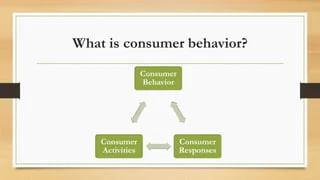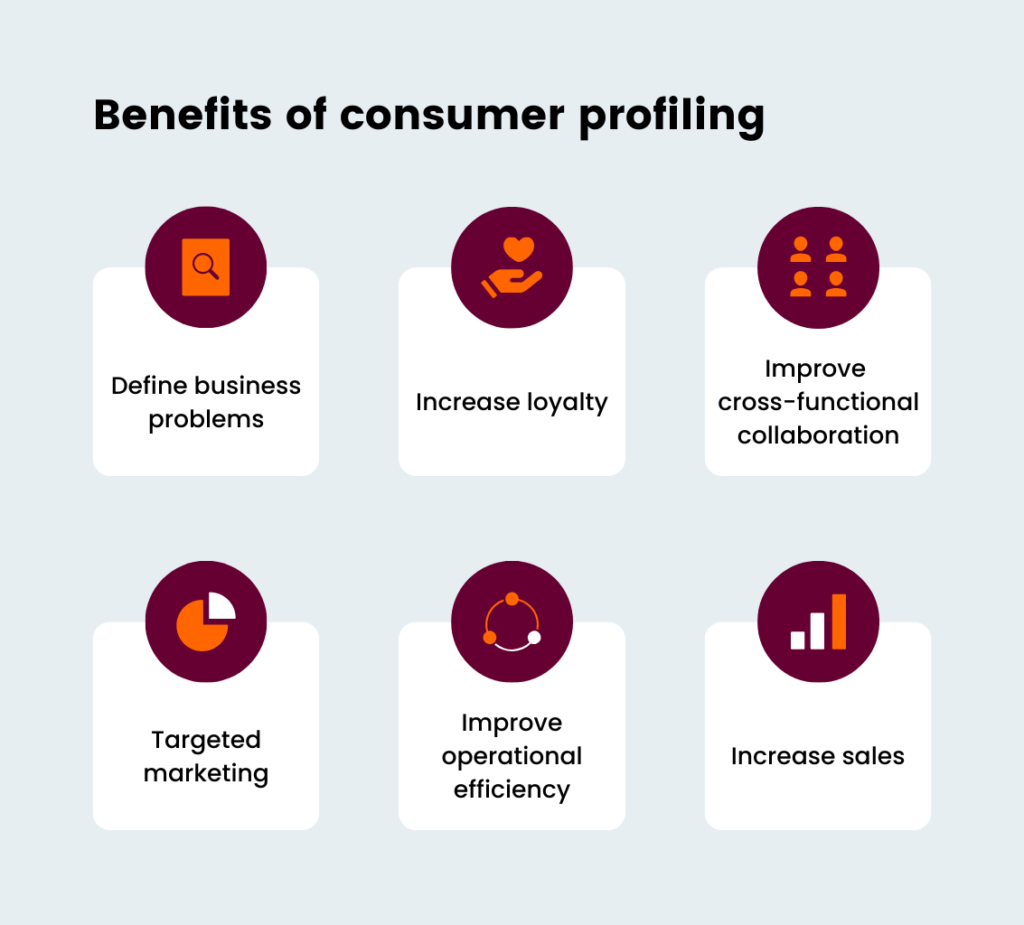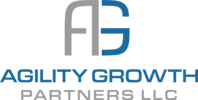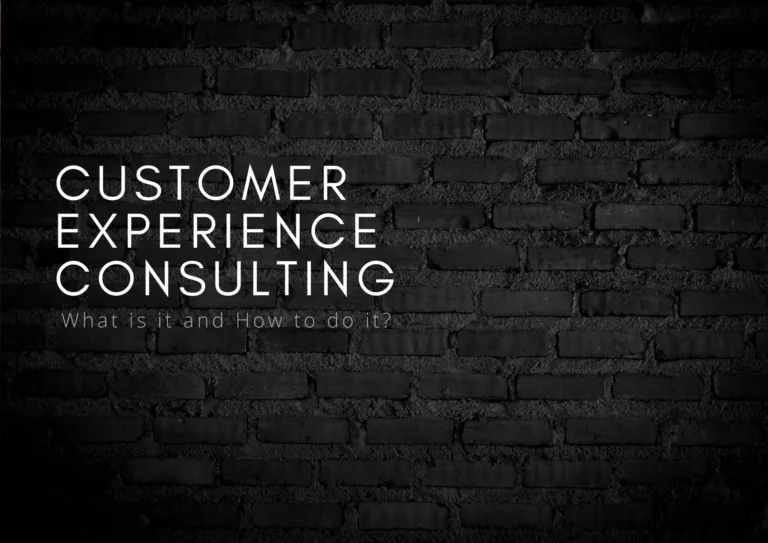In today’s dynamic market, understanding consumer behavior is critical to driving business success. A comprehensive consumer products types & overview allows businesses to identify key trends, preferences, and purchasing patterns that influence demand.
By analyzing how consumers engage with products and services, companies can develop strategies that align with their target audience’s needs and expectations. Whether it’s adapting to shifts in consumer preferences or addressing the growing demand for convenience, staying ahead of these trends is essential for businesses aiming to enhance customer satisfaction and foster long-term loyalty.
4 Types of Consumer Products
Not every consumer product is identical, making it crucial to differentiate between various product types when developing marketing strategies. From a marketing standpoint, the four types of consumer products to consider are:
- Convenience Products
- Shopping Products
- Specialty Products
- Unsought Products
Each of these categories has different characteristics and involves varying consumer purchasing behaviors, which directly impacts their marketing approaches.
1. Convenience Products
Among the four types, convenience products are purchased most frequently. These are consumer products or services that consumers buy regularly, with minimal effort in comparison or purchasing decision-making.
Examples of convenience products include bottled water, laundry detergents, fast food, and magazines. These items are typically low-priced and readily available in numerous locations, allowing consumers to easily access them when needed.
Marketing strategies for convenience products should focus on low prices—ideally competitive or below those of rival products—and widespread distribution across various channels and retailers. In today’s digital landscape, convenience also means leveraging home delivery options to meet the expectations of tech-savvy consumers.
To stand out in a crowded market, consider emphasizing unique product features, such as health benefits or ethical sourcing, to capture consumer attention.
2. Shopping Products
The second type, shopping products, are those that consumers typically compare based on quality, price, and style during the purchasing process. Unlike convenience products, shopping products are less frequently purchased and require more time and effort for consumers to gather information.
Examples include furniture, clothing, used cars, and airline services. Given their higher price points, marketing strategies for shopping products often involve fewer distribution outlets, enhanced sales support, and targeted advertising—both online and offline. Personal selling is also essential, as consumers are more inclined to seek assistance when making these purchases.
3. Specialty Products
Specialty products are unique consumer items that have distinctive characteristics or brand identification, attracting a specific group of consumers willing to invest considerable effort in their purchase.
Examples of specialty products include luxury cars, professional photography equipment, and designer clothing. Consumers often go out of their way to acquire these products, as demonstrated by those traveling significant distances to purchase a Ferrari.
For specialty products, exclusive distribution in limited outlets is essential, alongside highly targeted promotions to reach the niche audience willing to invest in such premium items.
4. Unsought Products
The final type, unsought products, are those that consumers either don’t know about or do not consider purchasing under normal circumstances. Examples include life insurance and pre-planned funeral services.
Marketing unsought products necessitates heightened efforts in advertising and personal selling to create awareness and stimulate demand. Aggressive marketing strategies are crucial, as these products require consumers to recognize their need for them. Effectively demonstrating the benefits and providing attractive pricing can significantly enhance the chances of success in this category.
Understanding the Consumer Goods Industry
The consumer goods industry encompasses a wide range of products designed for personal consumption, including everything from food and beverages to clothing and household items. Understanding this industry is crucial for businesses looking to thrive in today’s competitive marketplace. Consumer goods companies play a vital role in this ecosystem by producing and distributing these products to meet the diverse needs of consumers. By examining the landscape of consumer goods, we can identify key trends, opportunities, and challenges that shape market dynamics.
In the realm of consumer goods, the distinction between consumer goods and capital goods is essential. While consumer goods are intended for direct use by individuals or households, capital goods are utilized by businesses to produce other goods or services. This difference highlights the importance of consumer goods companies in driving economic growth. Understanding consumer goods examples, such as electronics, clothing, and personal care items, can help businesses tailor their offerings to meet market demands. As a consulting firm in New York, we leverage this knowledge to assist companies in developing effective strategies to navigate the complexities of the consumer goods sector.
Moreover, it’s important to recognize the synonyms and alternative terms associated with consumer goods. These items, often referred to as finished goods or end-user products, are purchased by consumers to fulfill their immediate needs. Our expertise in consumer goods consulting allows us to provide valuable insights on how to effectively position your products in the market.
By analyzing the competitive landscape of consumer goods companies in New York, we can help you develop tailored marketing strategies that resonate with your target audience and differentiate your brand from the competition.
Management Strategies for Consumer Products and Durable Goods
Optimizing Operations for Enhanced Efficiency
Efficiency is paramount in the consumer goods and durable goods sectors, where margins can be tight and competition fierce. We work closely with our clients to identify areas for operational improvement, from manufacturing processes to distribution networks. By implementing best practices and leveraging advanced technologies, such as automation and predictive analytics, we help businesses reduce costs, increase productivity, and improve overall operational performance. Our goal is to create lean, agile operations that can quickly adapt to market changes and customer needs.
Efficiency is critical in the consumer goods and durable goods sectors, where companies face tight margins and intense competition. At Agility Growth Partners, we partner with our clients to identify and implement strategies for operational improvement that drive cost savings and boost productivity. Our comprehensive approach encompasses several key areas to ensure businesses achieve optimal performance and maintain a competitive edge.

1. Enhancing Manufacturing Processes
Manufacturing processes are the backbone of operational efficiency. We assist our clients in optimizing production lines by integrating advanced technologies such as automation and robotics. This includes streamlining workflows, minimizing downtime, and adopting lean manufacturing principles to reduce waste. By conducting detailed process analyses and implementing continuous improvement practices, we help companies achieve higher throughput, consistent quality, and reduced production costs.
2. Optimizing Supply Chain and Distribution Networks
A well-optimized supply chain is essential for maintaining efficiency and responsiveness. We work with clients to enhance their supply chain strategies, focusing on areas such as inventory management, supplier relationships, and logistics. Our solutions include implementing advanced supply chain management (SCM) software for real-time visibility, improving demand forecasting with predictive analytics, and optimizing distribution routes to reduce lead times and transportation costs. These improvements lead to more reliable delivery schedules and better alignment with market demand.
3. Leveraging Technology for Greater Agility
Technology plays a crucial role in driving operational efficiency. We help companies leverage cutting-edge tools and platforms, including enterprise resource planning (ERP) systems, artificial intelligence (AI), and the Internet of Things (IoT), to enhance their operational capabilities. These technologies enable better data analysis, automation of routine tasks, and real-time monitoring of production and supply chain processes. By adopting these innovations, businesses can respond more swiftly to market changes and operational challenges, maintaining a competitive edge.
4. Implementing Best Practices for Operational Excellence
To achieve sustained efficiency, companies must adhere to industry best practices. We guide our clients in adopting best practices such as Six Sigma, Total Quality Management (TQM), and the Theory of Constraints (TOC). These methodologies focus on reducing defects, improving process consistency, and identifying and addressing bottlenecks. By integrating these practices into daily operations, businesses can enhance their overall performance and achieve higher levels of operational excellence.
5. Driving Continuous Improvement and Agility
Creating a culture of continuous improvement is essential for long-term success. We work with our clients to establish frameworks for ongoing evaluation and enhancement of their operations. This includes setting up key performance indicators (KPIs), conducting regular performance reviews, and fostering a mindset of innovation and agility within the organization. By promoting a proactive approach to process improvement and adapting to new trends and technologies, companies can stay ahead of the competition and meet evolving customer needs effectively.
By focusing on these critical areas, Agility Growth Partners helps businesses in the consumer goods and durable goods sectors optimize their operations, achieve greater efficiency, and maintain a competitive edge in a challenging market environment.
Streamlining Supply Chains for Greater Agility
Supply chain management is a critical component of success in the consumer goods and durable goods industries. We assist our clients in streamlining their supply chains to enhance speed, reliability, and cost-effectiveness. This includes optimizing logistics, reducing lead times, and improving supplier relationships. By increasing visibility across the supply chain and utilizing digital tools for better demand forecasting and inventory management, we help companies minimize disruptions, respond faster to market fluctuations, and deliver products more efficiently to consumers.
Supply chain management is crucial for achieving success in the consumer goods and durable goods sectors. At Agility Growth Partners, we help our clients streamline their supply chains to enhance speed, reliability, and cost-effectiveness. Our comprehensive approach includes optimizing logistics, reducing lead times, and improving supplier relationships to ensure that companies can respond swiftly to market demands and minimize disruptions.
Optimizing Logistics and Distribution
Efficient logistics and distribution are essential for maintaining a competitive edge. Our team assists clients in optimizing their logistics strategies through:
- Advanced Routing and Scheduling: Utilizing software to plan optimal routes and schedules, reducing transportation costs, and improving delivery times.
- Warehouse Optimization: Enhancing warehouse layouts and processes to increase storage efficiency and expedite order fulfillment.
- Outsourcing and Partnerships: Identifying and leveraging third-party logistics (3PL) providers to handle complex logistics functions and scale operations as needed.
Reducing Lead Times
Minimizing lead times is key to maintaining agility and meeting customer expectations. We focus on:
- Supplier Integration: Strengthening relationships with suppliers to ensure timely delivery of materials and components.
- Process Improvement: Streamlining production and procurement processes to reduce delays and accelerate product availability.
- Technology Implementation: Using technology such as automation and real-time tracking systems to monitor and manage lead times more effectively.
Enhancing Supplier Relationships
Strong supplier relationships are vital for a smooth supply chain. We help clients:
- Supplier Performance Management: Implementing metrics and monitoring systems to assess and improve supplier performance.
- Collaborative Planning: Engaging in joint planning and forecasting with suppliers to align production schedules and inventory levels.
- Risk Mitigation: Developing strategies to manage supplier risks, including diversifying suppliers and establishing contingency plans.

Increasing Supply Chain Visibility
Improved visibility across the supply chain enables better decision-making and responsiveness. Our solutions include:
- Real-Time Data Analytics: Leveraging data analytics tools to gain insights into supply chain performance and identify areas for improvement.
- Integrated Systems: Implementing integrated supply chain management systems to provide a unified view of inventory, orders, and shipments.
- Demand Forecasting: Utilizing advanced forecasting techniques to predict demand accurately and adjust supply chain operations accordingly.
Utilizing Digital Tools for Better Management
Digital tools are essential for modern supply chain management. We assist clients in:
- ERP Systems: Deploying enterprise resource planning (ERP) systems to integrate various supply chain functions and streamline operations.
- IoT and Automation: Incorporating Internet of Things (IoT) devices and automation technologies to enhance real-time monitoring and operational efficiency.
- Blockchain Technology: Exploring blockchain solutions to improve transparency and traceability across the supply chain.
By focusing on these key areas, Agility Growth Partners helps companies in the consumer goods and durable goods industries streamline their supply chains, achieve greater agility, and deliver products more efficiently to consumers. Our strategic approach ensures that businesses can respond to market fluctuations effectively and maintain a competitive edge in a dynamic environment.
Driving Innovation to Meet Changing Consumer Demands
Innovation is key to staying competitive in the consumer goods and durable goods markets, where consumer preferences are constantly evolving. We support our clients in developing new products, improving existing ones, and implementing innovative business models that resonate with today’s consumers. This involves leveraging consumer insights, exploring sustainable practices, and adopting new technologies like artificial intelligence and the Internet of Things (IoT). Our approach ensures that companies not only keep pace with industry trends but also set the standard for innovation in their markets.
Innovation is essential for maintaining competitiveness in the consumer goods and durable goods markets, where consumer preferences are in constant flux. At Agility Growth Partners, we assist our clients in developing new products, enhancing existing ones, and implementing innovative business models that align with today’s consumer expectations. Our holistic approach combines consumer insights, sustainable practices, and cutting-edge technologies to ensure that companies not only keep up with industry trends but also lead in innovation.
1. Developing New Products
Creating new products that meet evolving consumer needs requires a deep understanding of market trends and customer preferences. Our services include:
- Market Research and Consumer Insights: Conducting thorough market research and leveraging consumer feedback to identify opportunities for new product development.
- Ideation and Concept Development: Facilitating ideation sessions and concept development processes to generate innovative product ideas and solutions.
- Prototyping and Testing: Implementing rapid prototyping and testing methodologies to refine product designs and ensure they meet market demands before full-scale production.
2. Enhancing Existing Products
Improving existing products is crucial for maintaining relevance and customer satisfaction. We focus on:
- Product Performance Optimization: Analyzing product performance data to identify areas for enhancement and implementing improvements that increase functionality and user satisfaction.
- Customer Feedback Integration: Using feedback from customers to make iterative improvements and updates to existing products.
- Design Innovation: Incorporating advanced design techniques and materials to enhance the aesthetic appeal, durability, and usability of products.
3. Implementing Innovative Business Models
Adapting business models to fit contemporary market conditions is key for sustained growth. Our approach involves:
- Subscription and Digital Models: Exploring and implementing subscription-based or digital business models to create recurring revenue streams and enhance customer engagement.
- Direct-to-Consumer (DTC) Strategies: Developing DTC strategies to build stronger relationships with consumers and capture more value from sales.
- Platform and Ecosystem Development: Creating platforms and ecosystems that integrate various products and services to offer comprehensive solutions and enhance customer experiences.
4. Leveraging Advanced Technologies
Utilizing the latest technologies is crucial for driving innovation. We help clients integrate:
- Artificial Intelligence (AI): Employing AI technologies for data-driven decision-making, predictive analytics, and personalized customer experiences.
- Internet of Things (IoT): Implementing IoT solutions to enhance product functionality, monitor performance, and gather real-time data for better insights.
- Blockchain: Exploring blockchain technology for improved transparency, traceability, and security in supply chains and transactions.
5. Exploring Sustainable Practices
Sustainability is increasingly important to consumers and businesses alike. We support our clients in:
- Sustainable Product Design: Developing eco-friendly products and packaging that reduce environmental impact and appeal to environmentally conscious consumers.
- Green Manufacturing Practices: Implementing sustainable manufacturing processes that minimize waste and energy consumption.
- Corporate Social Responsibility (CSR): Integrating CSR initiatives into business strategies to enhance brand reputation and contribute positively to society.
By focusing on these critical areas, Agility Growth Partners helps companies in the consumer goods and durable goods sectors drive innovation, stay ahead of market trends, and deliver products and business models that resonate with today’s consumers. Our strategic approach ensures that businesses not only adapt to changing demands but also set the benchmark for innovation in their industries.
Achieving Long-Term Growth and Competitive Advantage
Ultimately, our goal is to help companies in the consumer goods and durable goods sectors achieve sustainable, long-term growth. We provide strategic guidance on market entry, expansion, and mergers and acquisitions, helping businesses capitalize on new opportunities while mitigating risks. Our deep industry knowledge and commitment to tailored solutions enable us to deliver results that drive revenue growth, increase market share, and enhance brand loyalty. By partnering with Agility Growth Partners, companies can build a resilient foundation for success in an increasingly competitive and dynamic global marketplace.
Long-Term Growth Revenue and Competitive Advantage
Ultimately, our goal at Agility Growth Partners is to assist companies in the consumer goods and durable goods sectors in achieving sustainable, long-term growth and securing a competitive edge. We provide comprehensive strategic guidance across various facets of business development, including market entry, expansion, and mergers and acquisitions. Our approach is designed to help businesses not only capitalize on emerging opportunities but also navigate and mitigate potential risks. By leveraging our deep industry expertise and commitment to personalized solutions, we deliver results that drive revenue growth, enhance market share, and bolster brand loyalty.
Strategic Market Entry and Expansion
Expanding into new markets or scaling existing operations requires a nuanced strategy. We support our clients in:
- Market Analysis and Entry Strategies: Conducting in-depth market research to identify and evaluate new market opportunities. Developing tailored market entry strategies that align with local regulations, consumer preferences, and competitive landscapes.
- Growth Strategies: Crafting strategies for organic growth, such as product diversification and geographic expansion, as well as inorganic growth through partnerships and acquisitions.
- Risk Management: Identifying potential risks associated with market entry and expansion and developing mitigation plans to address regulatory, operational, and market-specific challenges.
Guiding Mergers and Acquisitions
Mergers and acquisitions (M&A) can be powerful tools for achieving strategic objectives. We assist clients in:
- Transaction Strategy: Developing M&A strategies that align with business goals and growth aspirations. Conducting thorough due diligence to assess potential targets and ensure strategic fit.
- Integration Planning: Creating comprehensive integration plans to ensure smooth transitions and maximize the value of acquired assets. This includes aligning organizational cultures, optimizing operations, and realizing synergies.
- Post-Merger Support: Providing ongoing support post-merger to address integration challenges, enhance operational efficiency, and realize the anticipated benefits of the transaction.
Enhancing Revenue Growth and Market Share
To achieve sustained revenue growth and increase market share, we focus on:
- Revenue Optimization: Identifying and implementing strategies to enhance revenue streams, including pricing optimization, market segmentation, and customer retention initiatives.
- Market Penetration: Developing targeted marketing and sales strategies to capture new customer segments and increase market presence.
- Competitive Positioning: Analyzing competitive dynamics and positioning our clients’ brands to differentiate themselves and leverage unique value propositions.
Building Brand Loyalty and Resilience
Brand loyalty and resilience are crucial for long-term success. We help clients build and maintain strong brands by:
- Customer Experience Management: Enhancing customer experiences through personalized interactions, high-quality products, and responsive service. Implementing loyalty programs and feedback mechanisms to strengthen customer relationships.
- Reputation Management: Developing and executing strategies to manage brand reputation, including crisis management and public relations initiatives.
- Sustainability and Corporate Responsibility: Integrating sustainability and corporate social responsibility (CSR) into business strategies to align with consumer values and enhance brand reputation.
Creating a Resilient Foundation for Success
In an increasingly competitive and dynamic global marketplace, building a resilient foundation is essential. We support our clients in:
- Strategic Planning: Developing long-term strategic plans that account for industry trends, economic conditions, and technological advancements.
- Organizational Agility: Enhancing organizational agility to quickly adapt to market changes, emerging opportunities, and disruptive forces.
- Performance Measurement: Implementing performance metrics and dashboards to monitor progress, assess performance, and drive continuous improvement.
By partnering with the best consumer goods company in New York, Agility Growth Partners, the best consumer companies in the consumer goods and durable goods sectors can lay the groundwork for sustained success. Our strategic guidance and tailored solutions empower businesses to navigate the complexities of the global market, achieve growth objectives, and secure a competitive advantage that drives long-term success.
At Agility Growth Partners, we specialize in helping companies within the consumer goods and durable goods sectors navigate the complexities of today’s market. Our approach is designed to optimize operations, streamline supply chains, and drive innovation to meet evolving consumer demands.
Whether you’re dealing with the challenges of fluctuating raw material costs, shifting consumer preferences, or the need for digital transformation, our team provides the expertise and strategic guidance necessary to enhance your competitive advantage and ensure long-term growth.





